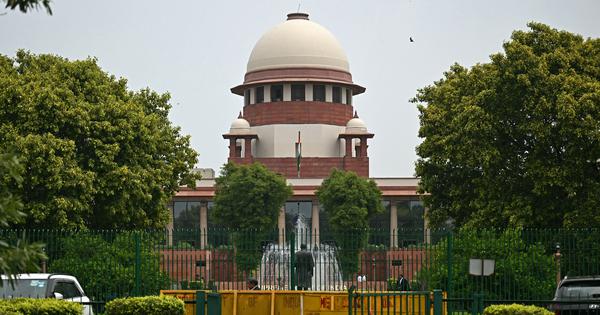State government and Governor reach consensus on appointments, resolving ongoing disputes over university leadership.
The Supreme Court has authorized the appointments of vice-chancellors for eight state-run universities in West Bengal. This decision came after the court was informed that both the West Bengal government and Governor CV Ananda Bose expressed no objections to the proposed names. The universities affected by this ruling include Calcutta University, Biswa Bangla Biswabidyalaya, Sadhu Ram Chand Murmu University of Jhargram, Gour Banga University, Kazi Nazrul University, Jadavpur University, Raiganj University, and North Bengal University.
The court’s ruling was delivered by a bench comprising Justices Surya Kant and Joymalya Bagchi, who were reviewing a petition filed by the Trinamool Congress-led West Bengal government. This petition challenged the governor’s delay in approving appointments to a total of 36 state universities. Following the Supreme Court’s approval, the state government is expected to proceed with the appointments shortly, although the specific identities of the appointees have not yet been disclosed to the public.
This development is significant as it highlights the ongoing tension between the West Bengal government and the governor’s office regarding the appointment of university leadership. The Supreme Court’s involvement comes after previous interventions by a committee led by former Chief Justice of India UU Lalit, which had previously cleared 19 appointments amid a backdrop of disputes over the remaining 17 positions. In these instances, the governor had declined to appoint the first-choice candidates recommended by Chief Minister Mamata Banerjee.
The role of the governor as chancellor of all state universities plays a crucial part in this process, as vice-chancellors are appointed from a panel of three names put forth by the state government. As the situation currently stands, the bench has indicated it will review the appointments for five additional universities where there remains a lack of agreement between the state and the governor. This ongoing scrutiny underscores the complexities of governance in West Bengal, particularly concerning higher education.
The resolution of these appointments may pave the way for improved leadership and administration within these universities, which are integral to the state’s educational framework. The Supreme Court’s intervention reflects its role in mediating between state and constitutional authorities, ensuring that higher education governance aligns with legal and procedural standards.








